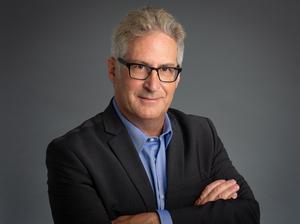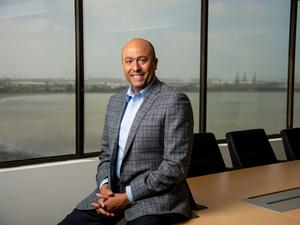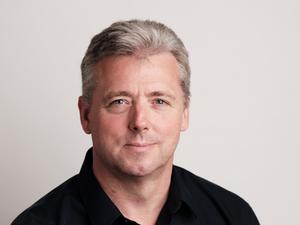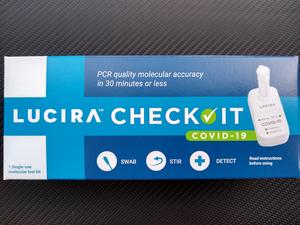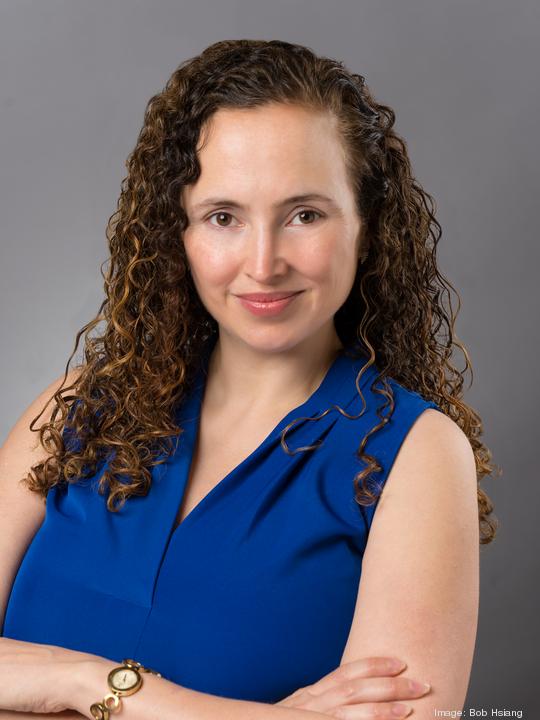
Sometimes it's not about inventing a better product but getting it into the hands of the right people. Just ask Naama Stauber Breckler.
Soon after the former Israeli military software engineer graduated from Stanford University with an MBA, she co-founded and led a company that developed urinary catheters for people with chronic bladder problems to use themselves. The company lined up Food and Drug Administration OKs and reimbursement from payers, she said, but that didn't prepare her for the challenge of distribution.
"We worked with existing distributors, but we found out there is no incentive to carry new or innovative products," Stauber Breckler said.
So Stauber Breckler started her own company two years ago — called Better Health — that Wednesday announced it lined up a $10 million Series A round to help it become the Amazon of medical supplies.
But the San Francisco company actually is much more than an Amazon-like specialty distributor, Stauber Breckler said. The company's thrust is not just getting medical supplies to patients faster and more efficiently, she said, but to tap the expertise of other patients ("peer coaching" as the company calls it) and the ease of telehealth services to help patients more effectively use medical devices at home.
The subscription-based process allows patients to spend less time trying to line up home deliveries and figure out how to use medical products, Stauber Breckler said. It also is designed to reduce return trips to the doctor.
"A lot of medical suppliers are logistics companies," Stauber Breckler said. "In talking to users, we learned people need more."
She pointed to the example of the gap between a doctor's post-surgery care and the care patients need once they get home and have to figure out how to effectively use a device.
Some of the patient stories Stauber Breckler tells are heartrending. One customer who lived 19 years with an ostomy — a medical procedure that allows bodily waste to pass from the abdomen into a bag worn on the hip — gained weight during the Covid-19 pandemic that was causing a leak; a Better Health peer helped them find a system that stopped the leak and improved the condition of their skin around the surgically created opening.
In another case, a patient with a catheter hadn't left home for three years for more than a couple of hours at a time because they weren't comfortable using the device away from home. With Better Health's help though they were coached to find another way to use the device outside the home.
"It's not just use of a product but what works specifically for your anatomy, your condition or your age," Stauber Breckler said.
Better Health subscribers aren't required to sign a contract and don't have a commitment fee, the company said. They are charged only for the cost of their supplies, which varies according to health condition, insurance coverage and type of product, after insurance is billed. The company essentially subsidizes the cost of samples and delivery fees.
The $10 million funding round, led by San Francisco-based Caffeinated Capital and Palo Alto-based General Catalyst, will help Better Health expand to other conditions and its number of partnerships with health care systems and insurers, Stauber Breckler said. Also participating in the round were 8VC, hedge fund guru Bill Ackman's Table Holdings, Motive Science, Modern Ventures and San Francisco's Anorak Ventures, Tank Hill Venture Partners and Unpopular Ventures.
One of 8VC's portfolio companies is health insurance startup Oscar Health, which along with Humana, Blue Cross Blue Shield of Illinois and Medicare are payers that use Better Health.
"If we are in-network (with insurers), we can serve their members and offer them better terms," Stauber Breckler said. "It's our aspiration to work with as many payers as possible."
Payers and health care systems pay Better Health like they would other medical distributors. That means the 40-person company, which has about eight employees in the Bay Area, doesn't have to rely on getting upfront payments from patients.
"The goal is to make life easier for patients and for clinicians," Stauber Breckler said.
